FUEL TANK VACUUM RELATED FAILURES
by
Charles C. Roberts, Jr.
Mobile fuel tanks can usually tolerate a moderate
internal pressure consistent with full fuel load and
dynamic load from vehicular movement. Mobile fuel
tanks are typically intolerant to external pressure
and often fail in a buckling mode. Figure 1 is a view
of a straight truck with mobile fuel tank mounted on
the bed.
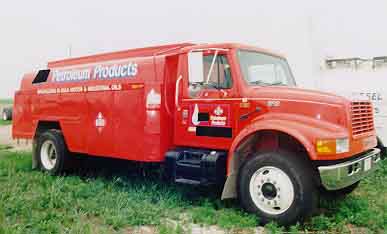
Figure 1
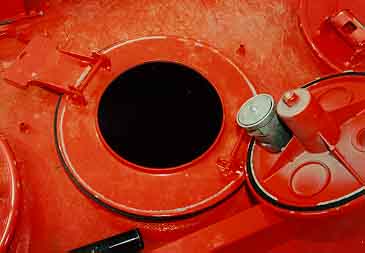
Figure 2
The rear bulk fuel tanks are
compartmentalized for a variety of products such as
grades of gasoline and fuel oil. Figure 2 is a view of
a compartment vent hatch that should be opened during
dispensing operations from that compartment. This
equalizes the pressure in the tank, preventing the
buckling failure. In the hatch is an atmospheric vent
valve (Figure 3) used to equalize pressure when the
dispensing operation is not being performed.
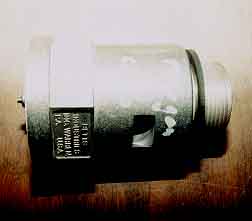
Figure 3
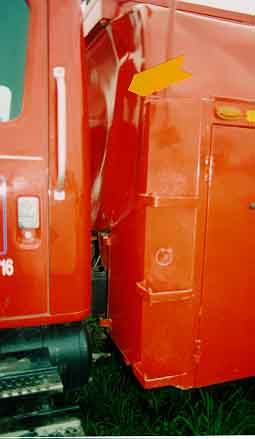
Figure 4
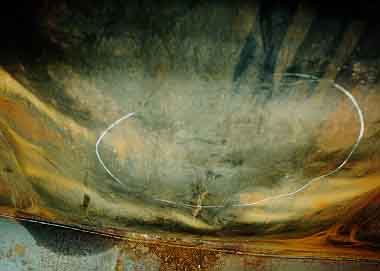
Figure 5
For
instance, as a result of evaporation, diurnal
temperature and pressure variations, tank damage can
occur if pressure is not equalized. The atmospheric
vent also reduces vapor evolution and allows
containment of the fuel if an overturn accident
occurs. The atmospheric vent valve is designed only
for this reason and not for dispensing. Despite
warnings from atmospheric vent manufacturers, many
fuel truck drivers rely on the atmospheric vent for
venting while dispensing product, instead of opening
the tank hatch. This practice works until a sticky
atmospheric vent is encountered or the dispensing flow
exceeds the capacity of the atmospheric vent to
equalize pressure. As the pressure drops in the tank
without sufficient equalization from the outside, a
buckling failure occurs as shown in Figure 4. Figure 5
shows an internal view of the buckling of the tank as
a result of insufficient venting. The tank damage is
costly, requiring replacement or expensive welding.
Many claimants tend to blame the atmospheric vent for
the damage when, in fact, it is improper dispensing
procedure that is the likely cause.
FOR TECHNICAL ARTICLES CONTACT CLAIMS MAGAZINE AND ASK
FOR A REPRINT OF A PAST TECHNICAL NOTEBOOK ARTICLE
CLAIMS MAGAZINE






